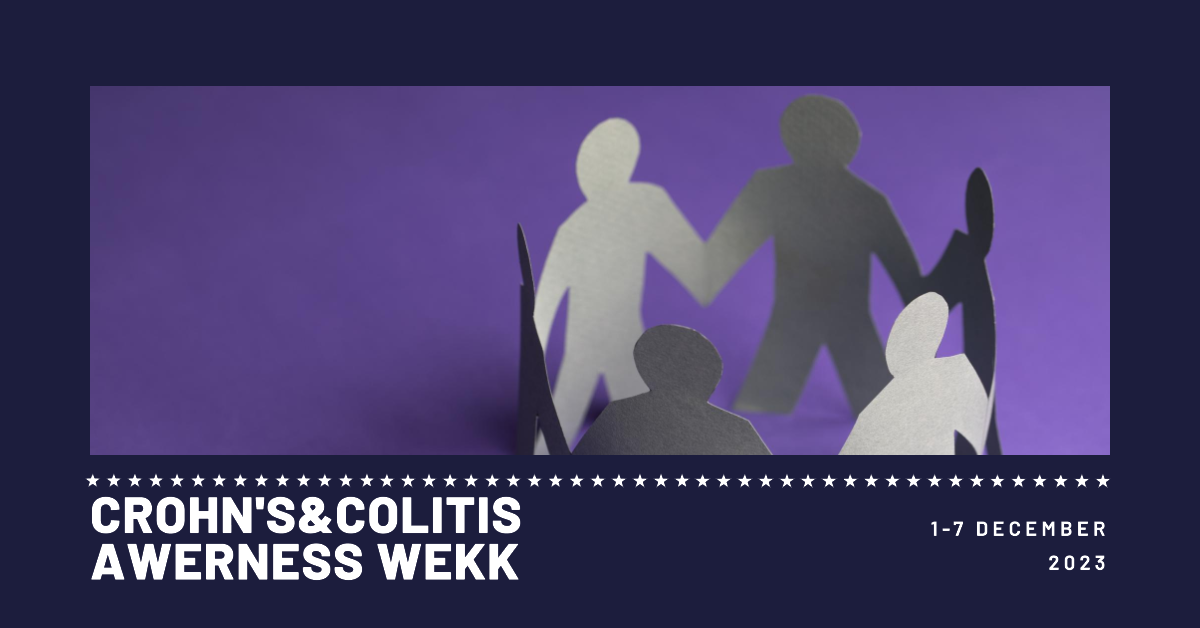Crohn’s and Colitis Awareness Week is an annual event observed from December 1st to 7th to raise awareness of Crohn’s disease and ulcerative colitis, which are two types of inflammatory bowel disease (IBD). This event is observed in several countries worldwide.
Autoimmune diseases like Crohn’s disease and ulcerative colitis lead to the inflammation of the digestive tract. The symptoms of inflammatory bowel disease (IBD) may include abdominal pain, diarrhea, and weight loss. Although there is no cure for IBD, there are treatments available that can help manage the symptoms and prevent complications.
Crohn’s and Colitis Awareness Week is a significant initiative that aims to promote awareness about these diseases and encourage individuals to seek medical assistance if they experience any related symptoms. The event also contributes towards reducing the stigma associated with Inflammatory Bowel Disease (IBD) and promotes research into developing new treatments and cures.
I am taking this opportunity to raise awareness about diseases and share common and uncommon facts. Recently, three areas were brought to my attention.
IBD and IBS are very different conditions.
IBD and IBS are both gastrointestinal (GI) disorders, but they are very dissimilar conditions. Inflammatory bowel disease (IBD) comprises a group of autoimmune disorders that result in chronic inflammation of the digestive tract, and the two main types of IBD are Crohn’s disease and Ulcerative Colitis. IBD can cause damage to the digestive tract and lead to serious complications such as ulcers, perforation, and bowel obstruction. On the other hand, irritable bowel syndrome (IBS) is a functional disorder of the digestive tract that can cause a range of symptoms including abdominal pain, bloating, diarrhoea, and constipation. Unlike IBD, IBS does not result in inflammation or damage to the digestive tract. It’s essential to keep in mind that individuals who suffer from IBD can also experience symptoms of IBS.
IBD is a chronic condition that currently has no cure, but it can be effectively managed with advanced medication and treatments that are currently in development.
Over the years, the treatment of inflammatory bowel disease (IBD) has undergone significant changes, thanks to the increasing understanding of the disease’s underlying causes and advances in medical technology. There have been crucial milestones in the development of IBD treatment.
Before the 1950s, the focus of treating IBD was to manage symptoms through rest and dietary modifications. There were no specific medications available at that time. The goal of these interventions was to reduce inflammation and promote healing of the intestinal tract. Between the 1950s and 1990s, three main therapy strategies were used to treat IBD. The introduction of drugs like sulfasalazine and mesalamine represented a significant breakthrough in IBD treatment. These medications act locally in the intestines, reducing inflammation and preventing disease progression. Alongside these, corticosteroids such as prednisone were also introduced during this period. They are powerful anti-inflammatory drugs that effectively control severe IBD flares but are associated with significant side effects with long-term use. Finally, immunosuppressants such as azathioprine and mercaptopurine were introduced to suppress the immune system and reduce inflammation in IBD patients. These medications are effective but carry an increased risk of infections and other side effects. Advancements in biological treatments were made in the 1990s. The development of anti-TNFα agents, including infliximab and adalimumab, has transformed the treatment of inflammatory bowel disease (IBD). These biological therapies specifically target tumour necrosis factor-alpha (TNFα), an essential inflammatory protein, and have shown significant efficacy in inducing remission and preventing relapses. Integrin α4β7 blockers, such as vedolizumab, represent a more recent class of biological therapies that specifically target gut-homing lymphocytes, reducing inflammation in the intestines without suppressing the overall immune system.
The management of IBD is like that of other chronic inflammatory conditions like rheumatoid arthritis and psoriasis. This is because these conditions share underlying mechanisms that involve an overactive immune system attacking the body’s own tissues. Inflammatory bowel disease (IBD) and certain cancers have several similarities in their treatment. Both conditions are characterized by uncontrolled cell growth and division. Therefore, many of the same medications and therapies can be used to treat both conditions. This is why the development of new therapies has become more effective in recent years. One medicine can now be used for multiple medical conditions.
Patients with IBD are more likely to experience mental health issues when compared to the general population.
It has been shown that patients with inflammatory bowel disease (IBD) in the UK are more likely to suffer from mental health conditions than the general population. A study published in the Gut Journal in 2019 found that approximately 20% and 30% of IBD patients suffer from anxiety and depression, respectively, compared to 7% and 10% in the general population. Another study published in the BMJ Mental Health Journal in 2022 also found that IBD patients are more likely to experience mental health conditions than the general population. The study revealed that the incidence of anxiety, depression, and insomnia was 1.25, 1.36, and 1.62 times higher, respectively, in IBD patients than in controls.
If you have Inflammatory Bowel Disease (IBD), know someone with IBD, or would simply like to learn more about Crohn’s and Colitis, there are plenty of information and resources available. Most countries have local charities and support groups for people affected by IBD. You can find a list of national Crohn’s and Colitis representatives on the ECCO website.


